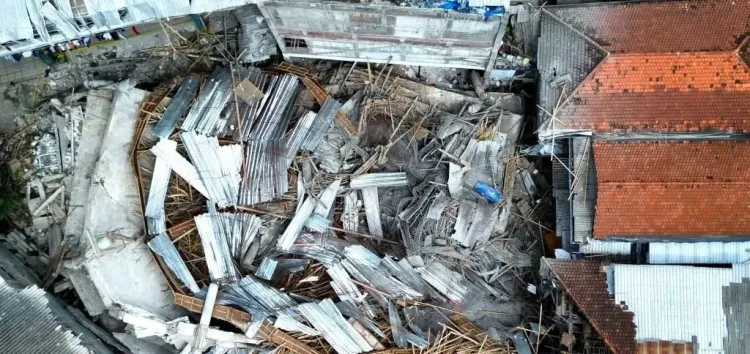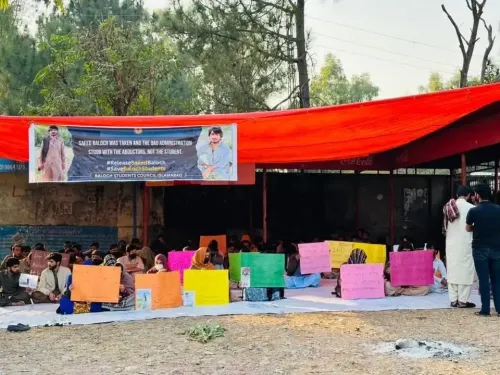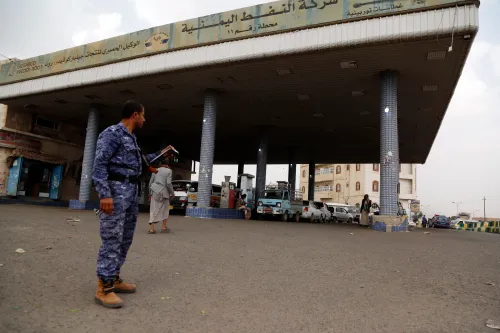What Caused the Tragic School Collapse in Indonesia?

Synopsis
Key Takeaways
- Death toll reaches 53 from school collapse in East Java.
- Rescue operations are ongoing with 104 survivors found.
- Concerns about construction practices have arisen.
- Investigation into permit compliance is underway.
- Safety regulations in Indonesia are under scrutiny.
Jakarta, Oct 6 (NationPress) The death toll from the tragic collapse of a school building in Indonesia's East Java province has now reached 53, with search operations for those still trapped continuing, according to regional rescue officials on Monday.
A coordinated rescue team managed to retrieve eight bodies on Sunday evening from beneath the debris of the Al Khoziny Islamic boarding school in Sidoarjo Regency, as reported by Nanang Sigit, head of the East Java Search and Rescue Office.
As operations enter their eighth day, a total of 157 individuals have been located, including 104 survivors and 53 deceased.
The evacuation efforts are ongoing, with debris removal currently concentrating on the north section of the site, in areas detached from the main structure. Heavy machinery and electrical tools have been mobilized to assist in the search.
The building collapsed on September 29 while hundreds of students were reportedly engaged in prayers inside, resulting in many being trapped below the rubble, according to Xinhua news agency.
On Thursday, rescuers initiated the use of heavy machinery after detecting no further signs of life, having previously depended on manual methods due to concerns that vibrations from larger equipment could incite additional collapses.
Officials noted that the rescue operations are particularly difficult, as activity in one area of the site could compromise stability in other zones.
While investigations into the cause of the collapse are ongoing, initial findings suggest that potentially inadequate construction practices may have played a role.
Subandi, the district head of Sidoarjo, confirmed earlier police statements that the school’s management did not secure the required construction permits before commencing the project.
Under Indonesia’s 2002 Building Construction Code, it is mandatory to obtain permits from the appropriate authorities prior to any construction activities. Failure to comply can lead to fines or imprisonment, and if such violations result in fatalities, penalties could extend up to 15 years in prison and fines reaching 8 billion rupiah (approximately $500,000).









